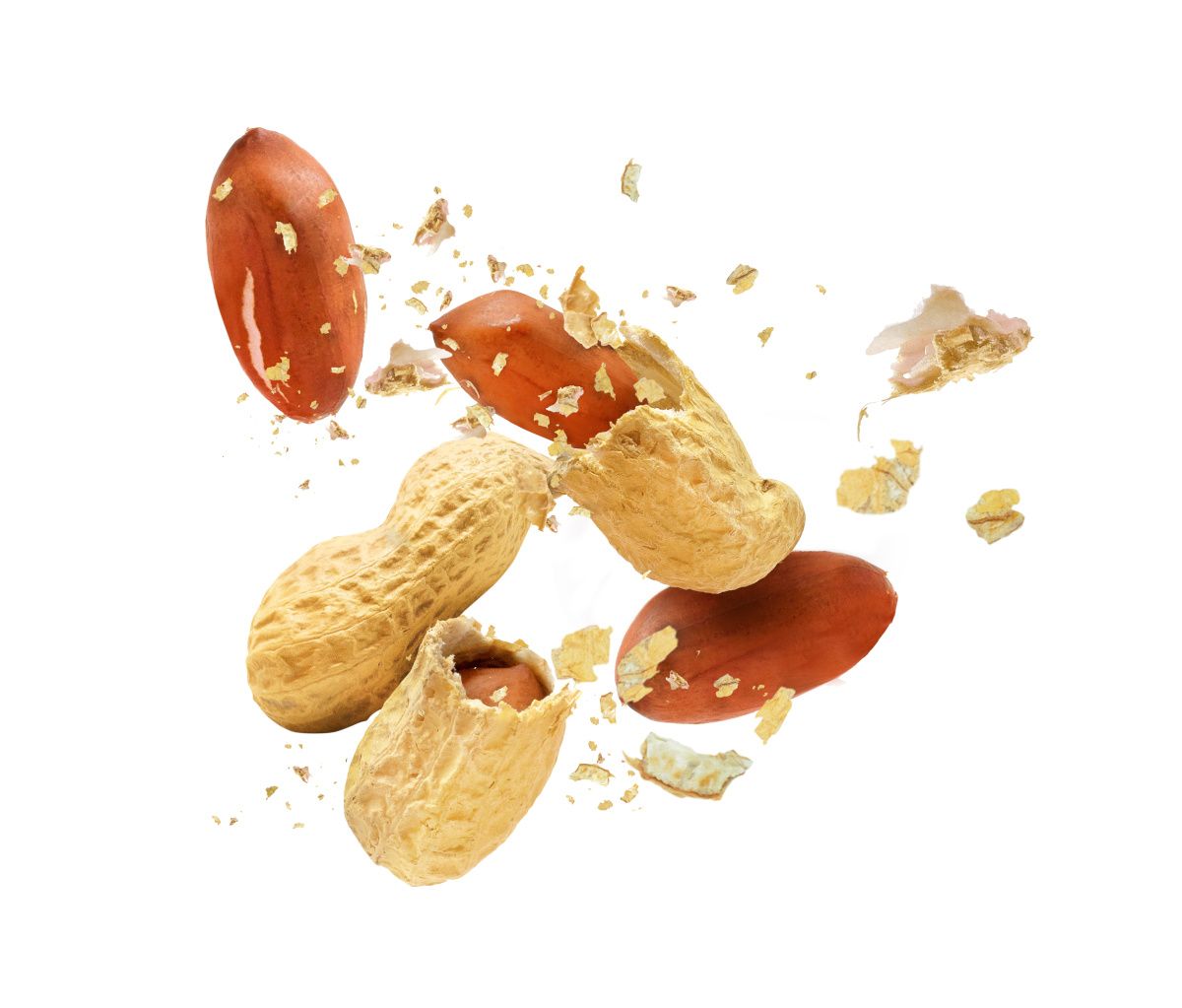Recent research finds that peanut consumption may support memory and mood function
Microbial phenolic metabolites associated with peanut consumption may positively impact memory and mood, says recent study.
Photo © AdobeStock.com/Krafla

A recent study1 found that microbial phenolic metabolites (MPMs) associated with peanut consumption may positively impact memory and mood. When dietary polyphenols are metabolized by gut bacteria they give rise to the more simple MPMs. These metabolites can cross the blood brain barrier to reach brain cells and have neuroprotective effects. In the study, 63 healthy young adults were randomized to consume either 25 g of skin roasted peanuts (SRP), 32 g of peanut butter (PB), or 32 g of control butter, daily for six months.
Researchers assessed cognition and mood at baseline and the end of the study using the Wechsler Memory Scale (WMS-IV) for assessing immediate and delayed memory and recognition, the Wechsler Adult Intelligence Scale (WAIS-III and IV) for assessing working memory, as well as the Digit Span and Letter-Number Sequencing (LNS) and the Trail Making Test (TMT) to measure cognitive flexibility and visual-motor processing speed. They also quantified urinary cortisol by an enzymatic method and analyzed MPMs by liquid chromatography coupled to mass spectrometry.
Results showed that after adjusting for sex and age, subjects consuming SRP and PB saw a trend of higher excretion of the MPMs lignan and hydroxybenzoic acid, compared to control. After six months, levels of urinary enterolignans were significantly higher in the SRP and PB groups, compared to baseline, and after adjustment, the SRP and PB groups also showed significantly higher levels of enterodiol glucuronide and enterolactone glucuronide, compared to control. With regard to the impact on cognition and mood outcomes, results showed that the PB group saw significant improvements in total verbal memory and total memory compared to baseline. Subjects in the SRP and PB groups also saw lower anxiety scores compared to baseline, while all groups saw a significant decrease in depression scores. Compared to control, subjects in the SRP groups saw a significant reduction in anxiety scores at six months after full adjustment. The SRP and PB groups also saw significant reductions in urinary cortisol levels compared to baseline, but there was no statistically significant difference between them and the control group.
The researchers found that the improvement of total memory scores was directly correlated with the excretion of some MPMs, specifically: enterodiol sulfate, enterolactone, total hydroxybenzoic acids, 3-hydroxybenzoic acid, 4-hydroxybenzoic acid, hydroxybenzoic acid sulfate, vanillic acid sulfate, and syringic acid sulfate. Decreases in depression scores were significantly correlated with higher levels of 3-hydroxybenzoic acid, 4-hydroxybenzoic acid, protocatechuic acid sulfate, syringic acid glucuronide I, and syringic acid sulfate, while cortisol levels were inversely and significantly correlated to protocatechuic acid sulfate and syringic acid sulfate.
"More and more research is looking at our gut microbiome and how it plays an integral role in affecting our immune system, brain health and other body functions," said Samara Sterling, PhD, RD, a nutrition scientist and research director for The Peanut Institute, which partially funded the study, in a press release. "These findings are exciting because the students consumed a relatively small amount of peanuts each day but the impact on their memory and mood was statistically significant."
Reference
Parilli-Moser, I.; López-Solís, R.; Domínguez-López, I.; Vallverdú-Queralt, A.; Hurtado-Barroso, S.; Lamuela-Raventós, R.M. Consumption of Peanut Products Enhances the Production of Microbial Phenolic Metabolites Related with Memory and Stress Response: Results from the ARISTOTLE Trial. Journal of Functional Foods, 2023, 108: 105746. DOI: 10.1016/j.jff.2023.105746.
HHS announces restructuring plans to consolidate divisions and downsize workforce
Published: March 27th 2025 | Updated: March 27th 2025According to the announcement, the restructuring will save taxpayers $1.8 billion per year by reducing the workforce by 10,000 full-time employees and consolidating the department’s 28 divisions into 15 new divisions.











